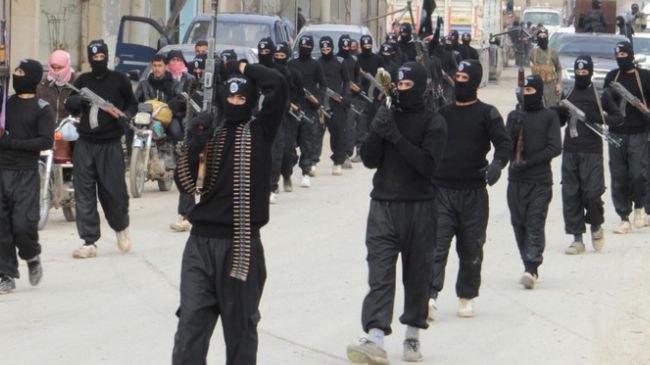Financing Jihad – The ISIL Money Trail
 (IraqiNews.com) Near the end of 2013, Syrian rebels were combating a major uprising of the Islamic State of Iraq and the Levant, ISIL. Donors, for years, had been providing financial support to anti-regime groups. Ironically, now some of those groups are at war with ISIL.
(IraqiNews.com) Near the end of 2013, Syrian rebels were combating a major uprising of the Islamic State of Iraq and the Levant, ISIL. Donors, for years, had been providing financial support to anti-regime groups. Ironically, now some of those groups are at war with ISIL.
After attempting to unify the anti-regime groups against Bashar Al Assad, Syria’s President, it became clear the unification was going to be a failed mission. At the beginning of the year, Mohammed Haif, Kuwaiti donor, began urging ISIL to withdraw from Syria, as the effort had failed.
Tweets became rampant about the missions of the ISIL and how they sought to bring down other Syrian jihadists. Donors became perturbed after giving hundreds of millions of dollars to the rebels. Until 2013, there were no laws in place to prevent terrorism funding.
Now, ISIL has taken over great portions of Iraq, making it appear militarily successful, and therefore more attractive to donors and investors who were previously skeptical. It appears to be a vicious cycle, as more military success makes the group more independent.
With its growing independence, comes a shrinking ability to control the organization from the outside. There’s an abundance of fingers to point for blame, as Iraq, in part, blames Saudi Arabia for its support. However, Saudi Arabia itself has officially called ISIL a terrorist organization and increased legal repercussions for any of those involved with the group.
In addition to its funding and military success, it appears thousands of recruits from around the globe have given the man power needed for the group to take down forces several times its size. It’s boosted its power so much so, that now an abundance of weaponry and armored vehicles, produced by the U.S. and given to Iraq, have now been captured by the Islamic group.
Another Kuwaiti donor has spent recent years visiting Syria to see just where his money is going. According to his twitter, he believes the ISIL movement is a much needed revolution for Iraq, who has been under “oppression and tyranny.” Those linked to the Muslim Brotherhood are proclaiming the same, that this is simply the result of previous Iraqi policies and corruption.
Even if these assumptions are wrong and donors continue to pull back as in recent years, ISIL has a specific goal for self sufficiency. From oil smuggling to bank robberies, the group doesn’t appear to have a concern for financing. Mid-month, ISIL’s funds increased to over $2 billion after raiding a $425 million government vault.
Unlike Al-Qaeda, to which the group is often compared, ISIL is more of a militia. Al-Qaeda typically carries out terrorist attacks, while ISIL has a motive to use them and other means to capture the areas and actually govern them. Iraqi security forces are seen on social media as being executed or throwing down weapons to surrender in horror of the terrorist group. Beheadings, crucifixions and captured soldiers and civilians are not uncommon now in the region. It’s certainly unclear how long the battle with ISIL will last, while they attempt to win over the population with religious inspiration, failed promises and propaganda.
